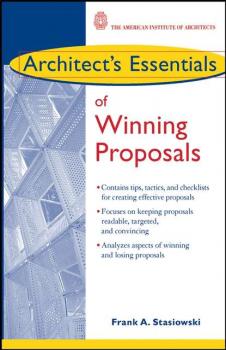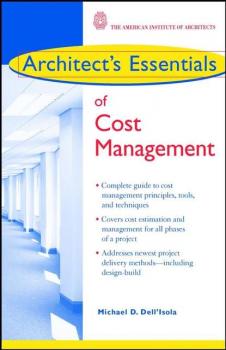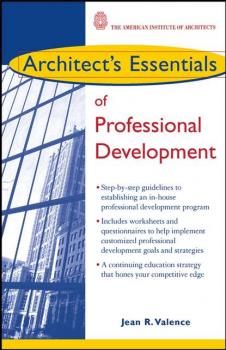Группа авторов
Список книг автора Группа авторовInternal Audit Reports Post Sarbanes-Oxley
Brimming with commonsense advice delivered in a conversational, easy-to-read style, Internal Audit Reports Post Sarbanes-Oxley: A Guide to Process-Driven Reporting helps you transform raw data into useable information and then translate that information into actionable messages while complying with the SOX Act.
Codification of Statements on Standards for Attestation Engagements, January 2018
This title provides the current clarified Statements on Standards for Attestation Engagements (SSAEs) and related interpretations in a codified format, providing accountants with the most up-to-date information needed to perform attestation engagements. This authoritative guidance, issued directly by the AICPA, is essential to fully understanding the requirements associated with an attestation engagement. In addition to SSAE No. 18, Attestation Standards: Clarification and Recodification, which is now effective, this edition includes the following new standard: Interpretation No. 4, “Performing and Reporting on an Attestation Engagement Under Two Sets of Attestation Standards,” of AT-C section 105, Concepts Common to All Attestation Engagements This codification is fully indexed and arranged by subject. The codified standards and related interpretations are vital to practitioners performing attestation engagements.
The Sarbanes-Oxley Section 404 Implementation Toolkit
The tools to manage ongoing Sarbanes-Oxley compliance In The Sarbanes-Oxley Section 404 Implementation Toolkit, author and consultant Michael Ramos provides a detailed road map to help companies not only streamline their compliance process, but also make the process manageable and repeatable year after year. The first book to provide detailed implementation practice aids for Sarbanes-Oxley 404 compliance, The Sarbanes-Oxley Section 404 Implementation Toolkit is packed with work programs, audit checklists, and examples that readers can tailor to meet their own unique needs. Featuring a useful CD-ROM that contains all of the tools from the book, this timely workbook includes best practices that will benefit anyone who participates in the planning or performance of the effectiveness of internal control. A must-read for all CFOs, internal auditors, CPA firms, and independent auditors involved in the compliance process, The Sarbanes-Oxley Section 404 Implementation Toolkit embraces the common approaches and methodologies that have proven successful in the new world of Sarbanes-Oxley internal control testing and reporting.
The Sarbanes-Oxley Section 404 Implementation Toolkit
Now updated and fully revised, The Sarbanes-Oxley Section 404 Implementation Toolkit, Second Edition helps large or small companies continue to meet the complex internal control reporting requirements of Sarbanes-Oxley. Brimming with a wealth of forms and checklists, the new edition helps you get up to speed quickly with SOX 404 requirements and makes the compliance process repeatable, more efficient, and more effective.
Executive's Guide to Fair Value
Praise for Executive's Guide to Fair Value: Profiting from the New Valuation Rules «The advent of fair value reporting is not your Momma's (or your Papa's) kind of accounting. If you're a financial professional above the age of twenty-five who is working in industry, read this book. From choosing a fair value specialist to the perils of 'made as instructed' valuations to purchase price allocations to impairment testing to that SEC tripwire, customer relationships, fair value expert Al King gets it right. And he does so with neither jargon nor literary anesthesia. As a former CFO myself, all I can say is WOW!» -Warren D. Miller, CFA, ASA, CMA, CPA, Cofounder, Beckmill Research A hands-on guide for financial executives needing to understand the appraisal process Executive's Guide to Fair Value: Profiting from the New Valuation Rules brings senior level executives up to speed on what fair value really means. This new book addresses a full range of issues facing auditors and executives, including litigation and the «true» determination of value, estimating the value of working capital, and how to estimate the value and life of intangible assets. Complete with advice on the latest FASB rules and regulations, Executive's Guide to Fair Value: Profiting from the New Valuation Rules provides the most up-to-date and reliable information on: The latest fair value rules and how they impact both preparers and users of financial statements The role and responsibility of the appraisal specialist, including best practice tips for choosing and evaluating an appraiser Testing customer relationships for impairment A thorough knowledge of what fair value accounting is and how it can impact your corporation and its profitability Practical applications, including incentive compensation and equity-based compensation In basic, nontechnical language, Executive's Guide to Fair Value: Profiting from the New Valuation Rules will help all financial executives and auditors succeed in understanding the new fair value accounting rules that corporations must now follow. The result is a resource that professionals can rely on to understand the importance of valuation and the concepts that define it.
Architect's Essentials of Winning Proposals
The Architect's Essentials of Professional Practice Series provides substantive information on the business of architecture and its affiliated professions to maintain and improve the quality of the professional and business environment. Architects and designers are usually required to prepare and submit proposals in order to secure new business and the success of these proposals has a direct impact on the success or failure of any given firm. Architectural firms spend an average of £'000s preparing proposals. This guide offers full coverage of how to create a proposal that will get the job Looks at how to personalise proposals as well as effectively targetting it to maximise success rates
Architect's Essentials of Cost Management
Written by a cost-control expert with more than thirty years of design and building expertise, this volume in the Professional Practice Essentials Series gives you practical, user-friendly guidance on how to better manager costs through all phases of a project. Dell'Isola first explains the basics of cost management-from estimating costs during the design phase to managing costs during construction and even after occupancy. He then covers all of the tools and techniques available to architects/designers and explains how best to use them. A number of useful case studies clearly show how the author's principles work in real-life situations.
Simplified Mechanics and Strength of Materials
Requiring little in the way of mathematic ability, but providing much information, this guide shows readers how they can understand and predict how a building and its materials will perform when exposed to a variety of external forces (mechanics). New information in this edition includes an analysis of indeterminate structures and the ultimate strength resistance of those structures. A greater emphasis is also placed on the fundamentals, providing professionals with simple concise solutions to common structural problems. Updated code and technology information is included, as are many more illustrations, and a wealth of problems and answers for self-study.
Building Type Basics for Research Laboratories
Planning to initiate designs for government, academic, and private research laboratories? Here's the nuts-and-bolts design guidelines that will start any project off on the right track and keep it there through completion. Filled with project photographs, diagrams, floor plans, sections, and details, Combines in-depth coverage of the structural, mechanical, energy, cost, and safety issues that are unique to research laboratories. Order your copy today!
Architect's Essentials of Professional Development
The architect's interest in continuing education has increased as a result of the national trend of state initiatives requiring continuing education for architect registration. Architect's Essentials of Professional Development assists registered architects and architecture firms in designing their own professional development programme in the context of professional practice. Information on this subject is in high demand Covers strategic planning, programme design and assessment while taking into consideration the culture of different design firms Assessment worksheets and questionnaires allow readers to personalise their books while discovering and implementing their own professional development goals and strategies Practical, applied, concise, affordable and user-friendly









